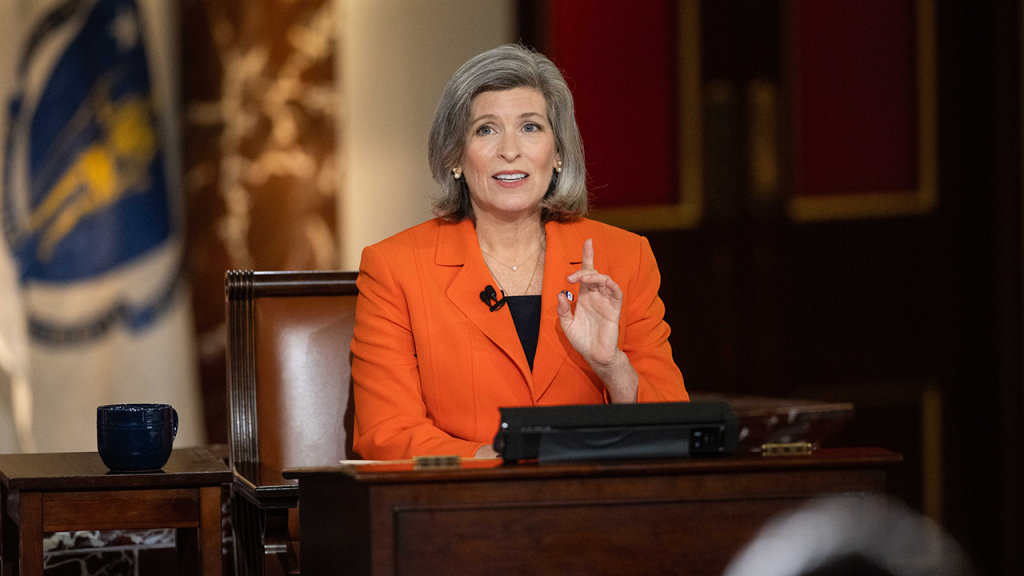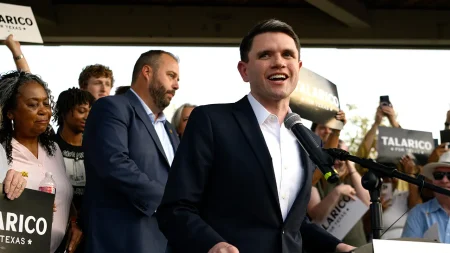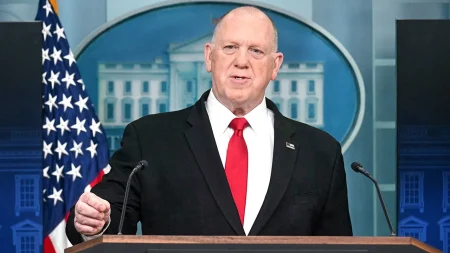Senator Joni Ernst has announced a proposal aimed at enhancing government efficiency through her establishment of the Department of Government Efficiency (DOGE). As the chair of the Senate DOGE Caucus, Ernst has collaborated with prominent figures like Elon Musk and Vivek Ramaswamy, who were appointed by President-elect Trump to lead this new agency. This initiative is positioned to address what Ernst identifies as significant issues with government employee telework, as well as the management of vacant government office space. A critical meeting on this topic is set for Thursday, where Ernst will unveil her detailed report and recommendations, aiming to spark dialogue among Republican lawmakers about reducing government waste and improving productivity.
Ernst’s proposal suggests a fundamental relocation of the federal workforce outside of Washington, D.C. She advocates for legislation that would move non-security-related government departments to areas better suited to their operational missions. Specifically, Ernst proposes to relocate at least 30% of the workforce from the D.C. headquarters of these departments to field offices nationwide. Furthermore, she suggests that executive agencies consider relocating staff without waiting for congressional approval. These suggestions reflect her findings over two years of investigating telework practices and seeking to balance productivity across government sectors.
In addition to workforce relocation, Ernst proposes that Congress set a standard for federal agencies to reach a 60% daily occupancy rate in their main offices. Alarmingly, her report reveals that none of the major agencies achieve even half of this target, with many buildings showing an occupancy rate as low as 12%. Ernst emphasizes the need to either utilize these buildings or dispose of them, advocating for a straightforward principle: “Use it or lose it!” She argues for auctioning off vacant and underused government properties through the General Services Administration, as many of these buildings are financially burdensome, costing approximately $8 billion annually for maintenance and another $7.7 billion for energy to keep them operational.
Ernst’s investigation reveals staggering inefficiencies within the government property management system, highlighting that there are 7,697 vacant buildings owned by the government, with 2,265 more being partially empty. Her proposals include a bipartisan initiative—the Federal Assets Sale and Transfer Act (FASTA) Reform Act—to extend the mission of the Public Buildings Reform Board, which identifies unused properties for government disposal. Additionally, she calls for legislation that mandates federal agencies consolidate their unused space to ensure that all buildings maintain a utilization rate of 60% or greater.
A central aspect of Ernst’s proposal is to create more accountability around federal telework practices. She has noted an issue where employees inflate their paychecks by claiming to work in jurisdictions with higher locality pay while actually residing elsewhere, some even living more than 2,000 miles away from their reported offices. Through several proposed bills aimed at increasing transparency and accountability in telework arrangements, Ernst hopes to address what she describes as significant abuses within the existing telework system.
As the legislative agenda progresses, Ernst plans to introduce her initiative in coordination with meetings involving Musk and Ramaswamy, who express a strong commitment to curtailing waste and inefficiencies within the federal government. With the Republican Party poised to control the federal government upon President-elect Trump’s return to office in January, Ernst’s proposals could potentially reshape government operations and usher in a more rigorous approach to efficiency and accountability. Her efforts underscore a significant movement towards rethinking government structures and ensuring that taxpayer resources are utilized effectively.















